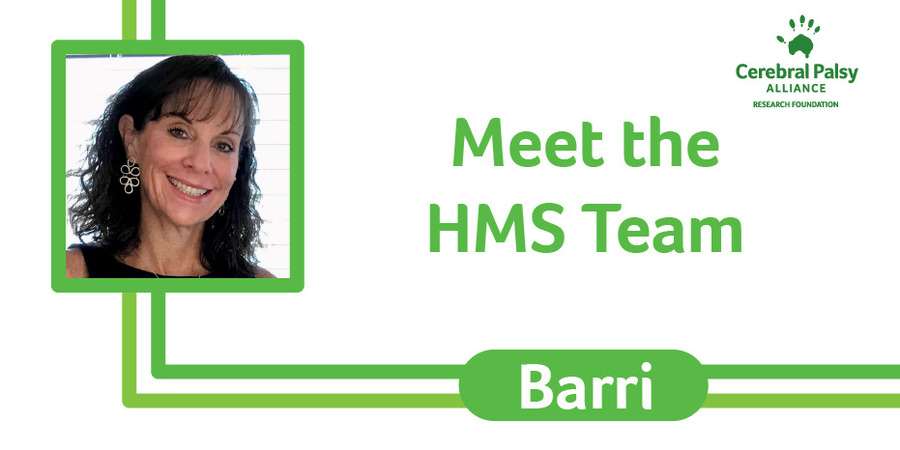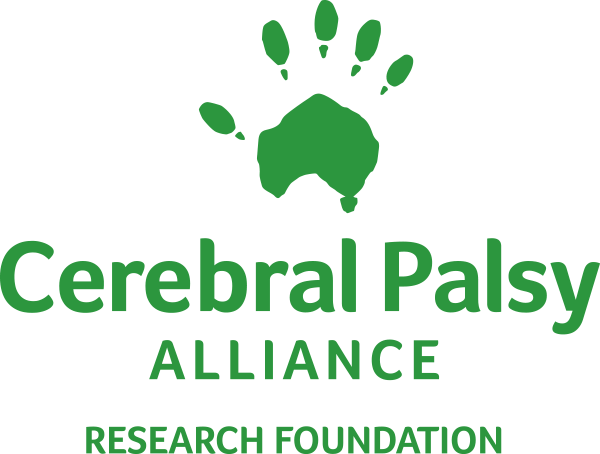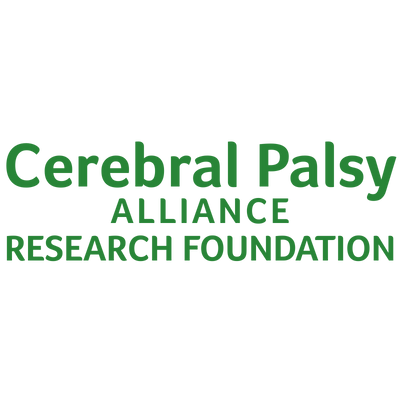
The CPARF team connected with the team at HMS School over our shared goal to change what is possible for people with cerebral palsy. We are proud and grateful that HMS is a CPARF nonprofit partner and we’re continuing this series about the school and some of the clinicians and staff who bring their talent and expertise to its halls every day.
Barri Alexander, PT, DPT, MBA, is a physical therapist and the Coordinator of Physical Therapy and Occupational Therapy at the HMS School for Children with Cerebral Palsy. We spoke with Barri to learn more about her work, what drives her, and what makes HMS so special.
What inspired you to become a physical therapist?
Originally, I wanted to be a doctor, a nurse, a teacher, or a helper of some kind. I wanted to study and practice physical therapy and then go to medical school, but then I realized that as a physical therapist, I could spend more time with patients.
At first, I worked as a physical therapist for adults, and while I was doing that, I treated someone who was 85 years old and had cerebral palsy (CP). I had worked with children with CP on my student affiliations, but this was my first time treating an adult with CP.
How did that experience influence your work at HMS?
It showed me that healthcare is so complex, and people need help navigating the system to optimize their outcomes. I’ve been at HMS for more than 30 years and I love it. I collaborate with so many other disciplines. I supervise occupational therapists and have learned a lot about OT over the years. The OTs focus on cognition, vision, sensory processing, and mental health, in addition to some of the musculoskeletal areas that the PTs address.
There are 57 students currently enrolled at HMS School, each with their own individual abilities and needs. At HMS, we really work to find out what a student can do and how we can help to maximize their function in the school environment.
What are some of the things you love about working at HMS?
I am inspired by so many dedicated staff members at HMS. Even during the pandemic, we did all that we could to help our students and families. I am always learning at HMS, as each student brings his or her own unique abilities and challenges.
At HMS, we try to make physical therapy fun and functional. We use passive movement, if needed, and try to facilitate active movement. We try to get our students up and moving as they are able. The goals of physical therapy for students with CP can vary depending on the individual's specific needs and abilities.
We address our students’ seating needs so they are comfortable in their wheelchairs and so they can engage during the school day. Our PT interventions should support the school environment, so we focus on the functional work we can do to improve our students’ abilities. Treatments can range from walking in a gait trainer, riding on an adaptive tricycle, working out on a ball or mat, to driving a power wheelchair or being positioned in a stander.
Physical therapy involves a lot of trust. How do you handle this?
We explain everything we are doing to each student before and as we’re doing it. We use lifts for transfers, rather than trying to personally move someone’s full bodyweight, and we listen to our students. For example, one student did not like the stander because he was still while he was in it. So we put him in a mobile stander, and he tolerated that much better. When we are able, we try to give our students choices of what they want to do during a session. We try to address issues that are important to our students.
Is there anything else you would like to share?
It is a privilege to be part of the lives of our students and families. Physical therapy is just one part of their life and PT is not a cure for CP. Working with families who have a child with a disability can be a great opportunity to learn from them. These families often have unique experiences and perspectives that can be insightful and inspiring. By working with families who have a child with a disability, we are not only helping that family, but also making a difference in the community. HMS tries to help raise awareness about the needs and challenges of families with disabilities and contribute to creating a more inclusive and supportive environment for everyone.
Fri 05 Dec 2025
An update on one of our most important initiatives: expanding access to life-changing assistive technology for Native Americans with disabilities.
Fri 10 Oct 2025
We’re thrilled to share an exciting milestone from CPARF’s Changemakers Program — our inaugural community-voted research study has been selected!



